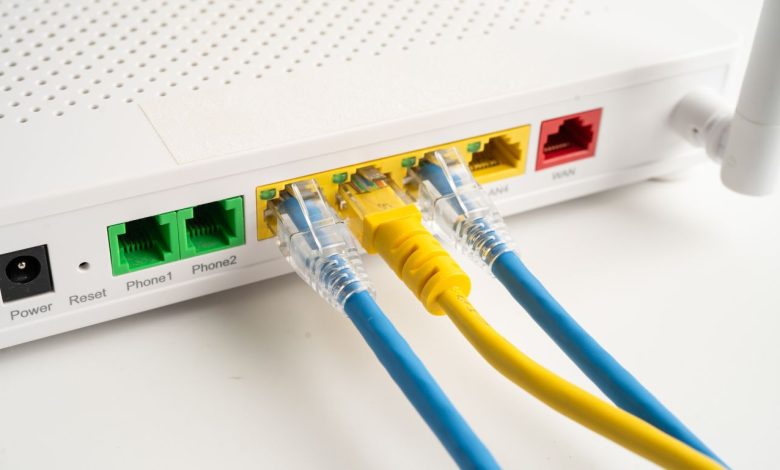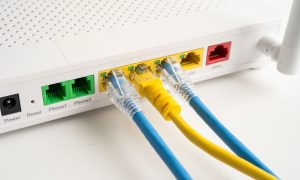
Your cable provider knows more about you than you think. Every click, every channel change, every streaming session gets logged somewhere in their vast data centers. The question isn’t whether they’re collecting your information – they are. The real question is: are they doing it without your permission?
This article breaks down the complex world of cable provider tracking. We’ll explore the technologies they use, examine the impact on your privacy, and discuss what you can do to protect yourself. Most importantly, we’ll address whether these practices cross legal and ethical boundaries when done without explicit consent.
Understanding these practices is crucial because your data has become a valuable asset. Cable companies aren’t just providing internet and TV services anymore – they’re running sophisticated data collection operations that rival tech giants.
Tracking Technologies Used by Cable Service Providers

Cable providers employ several sophisticated methods to monitor customer behavior. Deep packet inspection represents one of their most powerful tools. This technology allows them to examine the actual content of data packets traveling through their networks, not just where they’re going.
Your cable box serves as another tracking device. Modern set-top boxes track viewing habits, channel preferences, and even the duration of pauses on specific programs. These devices create detailed profiles of household entertainment consumption patterns.
IP address monitoring forms the backbone of most tracking operations. Broadband providers can associate your dynamic IP address with specific online activities. Even when your IP changes, they maintain continuity through device identifiers and technical configuration data.
Browser fingerprinting works through your internet connection. Cable companies can identify unique characteristics of your devices, including screen resolution, installed plugins, and system specifications. This creates a digital fingerprint that’s nearly impossible to change.
Application headers reveal additional information about your online activity. Every website request contains metadata that identifies your browser, operating system, and referring pages. Cable operators can analyze these patterns to build comprehensive user profiles.
Impact of Tracking on Consumers
Consumer privacy suffers a significant setback when cable providers collect data without providing transparent disclosure. Your browsing history becomes a commodity that’s bought, sold, and analyzed by third parties. This creates a surveillance economy where your personal information generates revenue for companies without your knowledge.
The psychological impact shouldn’t be underestimated. Knowing that someone is monitoring your every online move changes your behavior. People self-censor, avoid certain websites, or modify their natural browsing patterns. This chilling effect undermines the open nature of the internet.
Financial consequences emerge through targeted advertising and dynamic pricing. Cable companies can use your data to determine how much you’re willing to pay for services. They offer different deals to different customers based on perceived value and spending capacity.
Security risks multiply when personal data gets collected without proper safeguards. Data breaches become more damaging when they involve comprehensive behavioral profiles rather than just basic contact information. Your entire digital life becomes vulnerable.
Family privacy gets compromised when household-level tracking occurs. Children’s viewing habits, personal interests, and developmental stages are collected and stored in corporate databases. Parents lose control over what information gets collected about their families.
Potential for Data Discrimination
Data discrimination represents a growing concern in the telecommunications sector. Cable operators might use collected information to make decisions about service quality, pricing, or availability. Customers in specific demographics could face slower speeds or higher prices based on their digital profiles.
Credit scoring algorithms increasingly incorporate internet usage patterns. Your streaming habits, social media activity, and website visits may impact your ability to obtain loans or insurance. This creates a feedback loop where online behavior affects real-world opportunities.
Employment discrimination becomes possible when background check companies purchase data from broadband providers. Potential employers might access information about your political views, health concerns, or lifestyle choices through your internet history.
Housing discrimination could emerge through similar mechanisms. Landlords might use internet activity profiles to screen tenants, potentially violating fair housing laws. Your Netflix preferences shouldn’t determine where you can live.
Geographic redlining assumes new dimensions when cable companies utilize data analytics to inform infrastructure investments. Areas with specific demographic profiles may experience slower internet speeds or delayed service upgrades.
Protecting Consumer Privacy
Using VPNs represents your first line of defense against cable provider tracking. Virtual private networks encrypt your internet traffic and route it through external servers. This prevents your cable company from seeing which websites you visit or what services you use.
However, VPN effectiveness has limitations. Your cable provider still knows you’re using a VPN and can see the amount of data you’re transferring. They might also throttle VPN traffic or block specific VPN servers entirely.
Secure web practices enhance your privacy protection. Using HTTPS websites, enabling DNS-over-HTTPS, and choosing privacy-focused browsers reduce the amount of trackable information. These steps won’t stop all tracking, but they will significantly limit what cable companies can see.
Router-level protection offers household-wide privacy benefits. Installing privacy-focused firmware or using routers with built-in VPN capabilities protects all devices on your network. This approach requires more technical knowledge but provides comprehensive coverage.
Regular privacy audits help you understand what information gets collected. Reading privacy policies, checking data collection settings, and monitoring your digital footprint keep you informed about tracking practices.
Ethical and Legal Implications
The ethical landscape surrounding cable provider tracking remains murky. While companies argue they need data for network optimization and service improvement, critics question whether comprehensive behavioral monitoring crosses moral boundaries.
Informed consent stands at the center of these ethical debates. True consent requires customers to understand what data is collected, how it’s used, and who has access to it. Most cable provider privacy policies fail to meet these standards.
Federal privacy laws provide limited protection for internet customers. The Cable Communications Policy Act offers some safeguards for cable television subscribers, but internet services often fall outside these protections. This regulatory gap allows extensive tracking with minimal oversight.
Responsibility and Accountability of Providers
Cable companies bear significant responsibility for protecting customer privacy. Their role as internet service providers puts them in a unique position to access intimate details about customers’ digital lives. This privileged access demands higher ethical standards.
Transparency obligations require providers to communicate their data practices clearly. Customers deserve to know what information gets collected, how long it’s stored, and whether it’s shared with third parties. Current disclosure practices often fall short of these standards.
Data minimization principles suggest companies should only collect information necessary for service provision. Comprehensive behavioral tracking often exceeds what’s needed for basic internet and cable services.
Security obligations extend beyond preventing data breaches. Providers must implement robust safeguards to protect collected information from unauthorized access, whether by criminals, government agencies, or unauthorized employees.
Need for Robust Privacy Regulations

Current regulatory frameworks lag behind technological capabilities. Laws written for traditional telecommunications services don’t adequately address the data collection practices of modern internet service providers. This outdated legal structure leaves consumers vulnerable.
Comprehensive privacy legislation should establish clear rules for data collection, use, and sharing. These rules need to apply equally to all broadband providers, regardless of whether they offer cable, fiber, or wireless services.
Enforcement mechanisms must have real teeth. Regulatory agencies need sufficient funding and authority to investigate violations, impose meaningful penalties, and ensure compliance with privacy requirements.
Consumer rights should include the ability to access, correct, and delete personal information held by cable providers. Customers should also have the right to opt out of data collection practices that aren’t essential for service provision.
Suggestions for Policy Improvements
Federal legislation should establish a comprehensive framework for privacy protection among broadband providers. This framework should require explicit opt-in consent for data collection beyond what is necessary for the provision of services. Customers should have the right to refuse tracking without losing access to basic internet services.
Regular auditing requirements would ensure compliance with privacy regulations. Independent third parties should review the data practices of cable providers and publish public reports about their findings.
Data portability rights allow customers to transfer their information when switching providers. This reduces the competitive advantage that comes from hoarding customer data and promotes market competition.
Stronger penalties for privacy violations create meaningful deterrents. Current fines often represent a small cost of doing business rather than a serious consequence for privacy violations.
Conclusion
Cable service providers can and do track customers extensively, often without meaningful consent. The technologies they employ create detailed profiles of your digital life, from browsing habits to viewing preferences. This surveillance affects your privacy and security and may impact your life opportunities.
The current system prioritizes corporate profits over consumer privacy. Cable companies collect vast amounts of personal data with minimal oversight or accountability. This must change if we want to preserve digital privacy rights for future generations.
Your internet service provider shouldn’t double as a surveillance company. Demanding transparency, supporting privacy legislation, and voting with your wallet sends a clear message that privacy is a priority. The fight for digital privacy starts with understanding the problem, and now you do.
FAQs
Can cable companies see what websites I visit?
Yes, cable companies can see which websites you visit through your internet connection. They monitor IP addresses and DNS requests and can perform deep packet inspection to see your browsing activity.
Is tracking by cable providers legal?
Cable provider tracking exists in a legal gray area. While they’re required to disclose data collection in privacy policies, the extent of monitoring often exceeds what customers understand they’re consenting to.
How can I prevent my cable company from tracking my activity?
Use a VPN to encrypt your traffic, enable HTTPS everywhere, use privacy-focused browsers, and consider router-level protection. Complete prevention is difficult, but these steps significantly reduce tracking.
Do cable companies sell my data?
Many cable companies share customer data with advertisers and marketing companies. While they may not directly “sell” data, they often monetize it through partnerships and targeted advertising programs.
What data do cable companies collect?
Cable companies collect browsing history, device information, location data, viewing habits, app usage, and network activity. They also gather personal information from account setup and customer service interactions.
